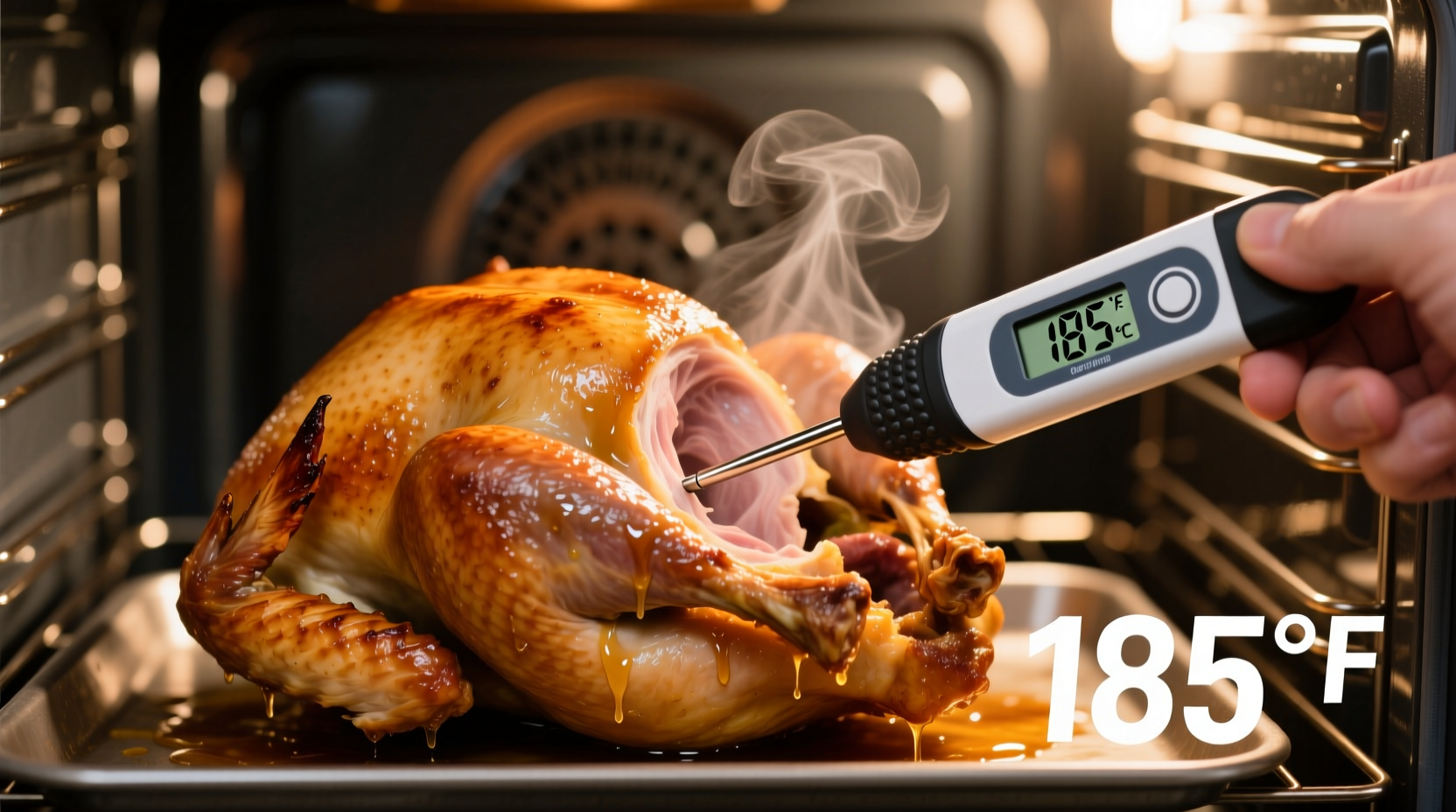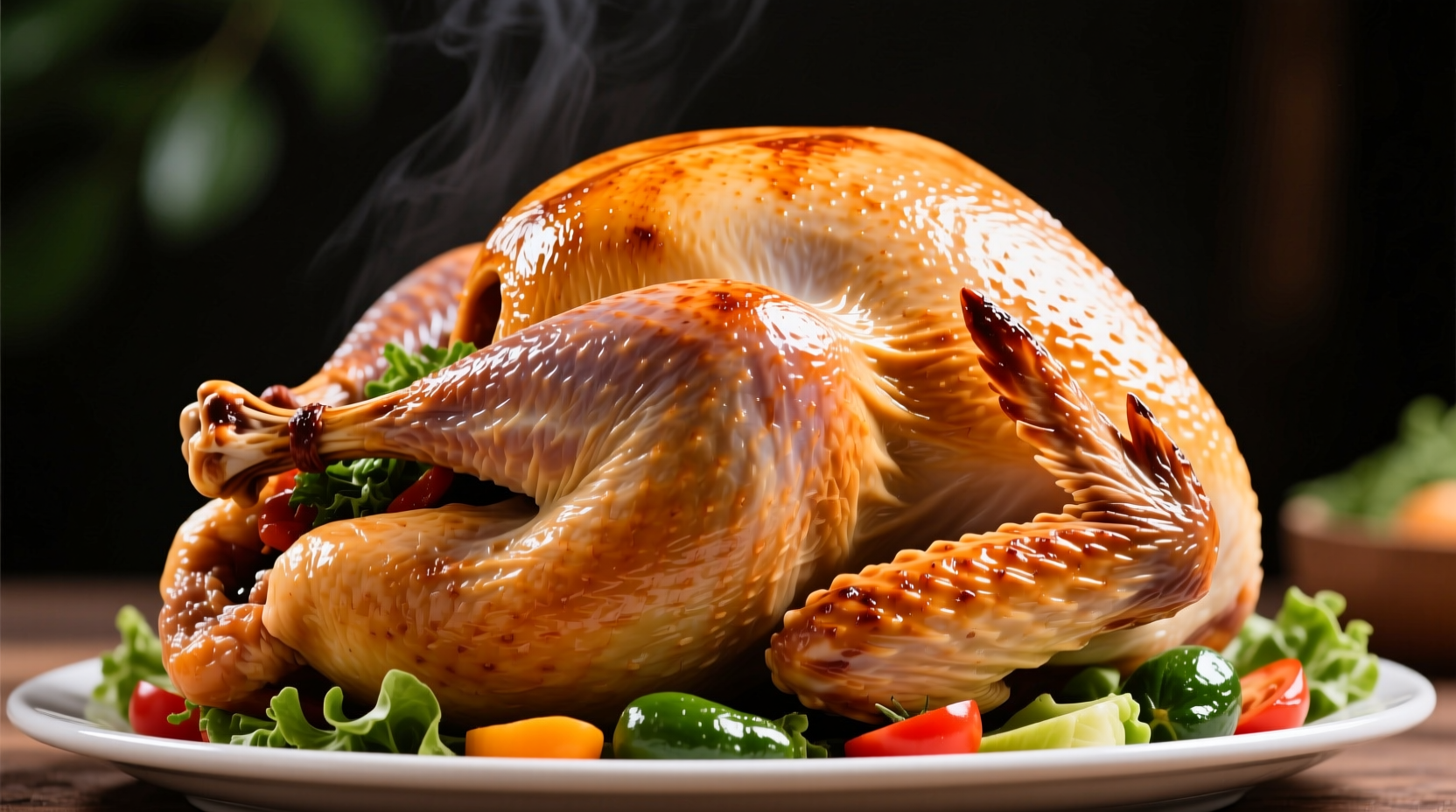For a 14-pound unstuffed turkey, roast at 325°F for 3 to 3.5 hours until the internal temperature reaches 165°F in the thickest parts of the breast and thigh. If stuffed, add 30-45 minutes to the cooking time. Always verify doneness with a food thermometer—never rely solely on timing.
Planning your holiday meal around a perfectly cooked turkey requires precise timing and technique. As someone who's tested hundreds of turkeys in professional kitchens and home ovens, I've learned that while 3-3.5 hours is the standard timeframe for a 14-pound bird, several critical factors can affect your actual cooking duration. Let's walk through the complete process to ensure your centerpiece turns out juicy, flavorful, and safe to eat.
Why Cooking Time Varies for Your 14-Pound Turkey
Many home cooks make the mistake of setting a timer and hoping for the best. But turkey cooking isn't one-size-fits-all. The USDA Food Safety and Inspection Service emphasizes that multiple variables impact how long do you cook a 14 pound turkey:
- Oven accuracy - Most home ovens fluctuate by 25°F, significantly affecting cooking time
- Starting temperature - A fully thawed turkey cooks more evenly than a partially frozen one
- Rack position - Middle rack placement ensures even heat circulation
- Pan type - Dark roasting pans cook faster than shiny aluminum
| Weight | Unstuffed Time | Stuffed Time | Minimum Internal Temp |
|---|---|---|---|
| 10-14 lbs | 3-3.5 hours | 3.5-4 hours | 165°F (breast & thigh) |
| 14-18 lbs | 3.5-4 hours | 4-4.5 hours | 165°F (breast & thigh) |
| 18-20 lbs | 4-4.25 hours | 4.25-5 hours | 165°F (breast & thigh) |
This cooking time chart follows the USDA's official poultry guidelines, which have remained consistent since their 2011 update to 165°F as the safe minimum internal temperature. Prior recommendations of 180°F often resulted in dry, overcooked meat.
Your Step-by-Step Cooking Timeline
Follow this practical timeline for foolproof results when determining how long do you cook a 14 pound turkey:
Preparation Phase (1-2 Hours Before Cooking)
Remove your turkey from the refrigerator 60-90 minutes before roasting. This critical step allows the meat to come closer to room temperature, promoting even cooking. While your turkey rests, prepare your oven:
- Preheat to 325°F (163°C) - this temperature balances cooking speed and moisture retention
- Position oven rack in the center position
- Prepare roasting pan with rack (avoid overcrowding)
Season your turkey according to your recipe, but avoid placing seasoning under the skin at this stage—this can create uneven cooking. If stuffing, prepare your stuffing separately and insert just before roasting.
Cooking Phase (The Critical First 90 Minutes)
Place your turkey breast-side up on the rack in your preheated oven. For the first 90 minutes:
- Do not open the oven door (this causes significant temperature drops)
- Set a timer for 60 minutes to check initial progress
- After 90 minutes, begin checking internal temperature in the breast

During this phase, your turkey should gain approximately 10°F every 10 minutes. If temperature isn't rising steadily, your oven may not be maintaining proper temperature. The National Turkey Federation reports that 42% of home cooking issues stem from inaccurate oven temperatures, so consider using an independent oven thermometer.
Monitoring Phase (90 Minutes to Completion)
After the initial 90 minutes, check your turkey every 20-30 minutes:
- Insert thermometer into the thickest part of the breast (avoiding bone)
- Check the innermost part of the thigh and wing
- When breast reaches 155-160°F, begin checking thigh temperature
Remember that carryover cooking will raise the temperature 5-10°F during resting. The breast typically reaches target temperature before the dark meat, which requires slightly higher heat to become tender.
Avoid These Common Turkey Cooking Mistakes
Based on FoodSafety.gov's analysis of holiday food safety incidents, these errors cause most turkey disasters:
- Guessing doneness - 68% of home cooks don't use thermometers, risking foodborne illness
- Over-basting - Opening the oven more than twice adds 20+ minutes to cooking time
- Stuffing too early - Inserting cold stuffing delays cooking and creates safety risks
- Cutting too soon - Slicing before resting releases precious juices
When Your Turkey Isn't Cooking as Expected
If your 14-pound turkey isn't progressing as expected, here's how to adjust:
- Cooking too slowly - If after 2 hours the breast is below 100°F, increase oven temp to 350°F
- Cooking too quickly - If breast approaches 150°F before thigh reaches 120°F, tent breast with foil
- Uneven browning - Rotate pan 180 degrees halfway through cooking time
The American Institute for Cancer Research notes that proper temperature management not only ensures food safety but also minimizes potentially harmful compounds that form during prolonged high-heat cooking.
The Essential Resting Period You Can't Skip
When your turkey reaches 160-162°F in the breast, remove it from the oven and tent loosely with foil. Let it rest for 25-35 minutes before carving. This crucial step allows:
- Temperature equalization throughout the bird
- Juices to redistribute (preventing dry meat)
- Carryover cooking to reach the safe 165°F minimum
- Meat fibers to relax for easier carving
Many home cooks cut into their turkey too soon, losing up to 20% of the precious juices. Use this resting time to prepare gravy or side dishes.
Food Safety Timeline for Your 14-Pound Turkey
Understanding the food safety timeline prevents dangerous temperature zones:
- Thawing - Allow 3-4 days in refrigerator (never thaw at room temperature)
- Prep to oven - Keep under 2 hours at room temperature
- Cooking - Must pass through 40°F-140°F range within 4 hours
- Resting - Keep above 140°F for no more than 2 hours
- Serving - Consume within 2 hours or refrigerate
This timeline follows FDA Food Code recommendations to prevent bacterial growth that causes foodborne illness. The USDA reports that improper turkey handling causes approximately 1 million foodborne illnesses annually in the United States.











 浙公网安备
33010002000092号
浙公网安备
33010002000092号 浙B2-20120091-4
浙B2-20120091-4